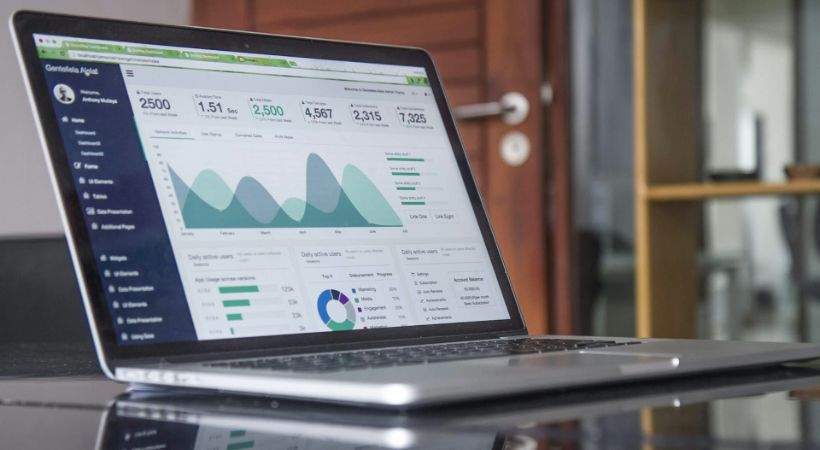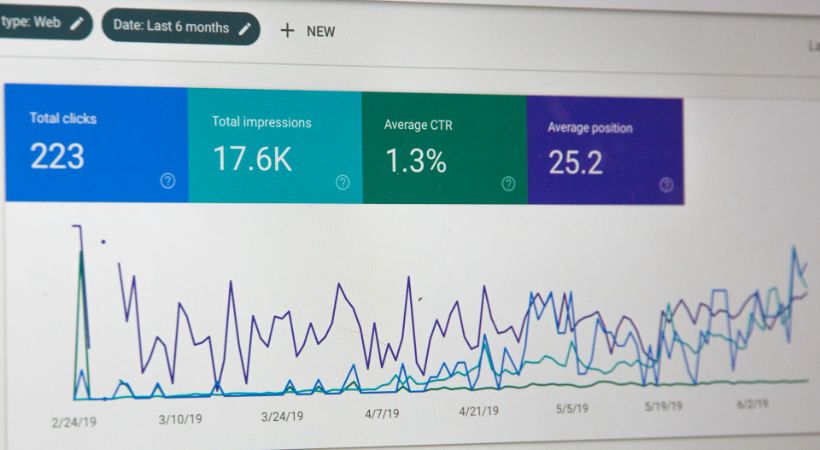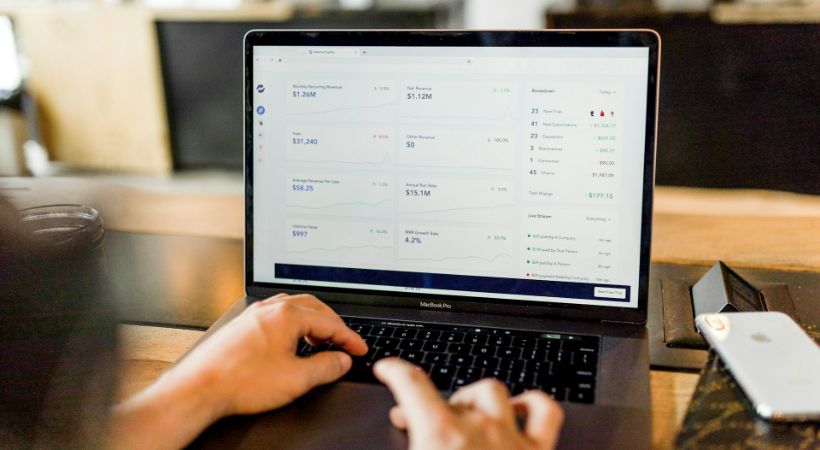PPC stands for Pay-Per-Click.
But how does it actually work?
Well, the clue is in the name.
But in case you’re still not sure, we’ll give you a full explanation of what PPC is and why it’s important.
So strap yourself in because this is going to be one heck of a juicy value-packed blog post on all things PPC.
Let’s get into it.

What is PPC?
PPC is a digital marketing model where you pay a fee each time your ad is clicked.
It’s a way of buying visits to your site, rather than attempting to “earn” those visits organically.
(Think of the opposite of SEO).
You can place PPC ads on search engines.
Here you bid for ad placement in the search engine’s sponsored links.
Then your ad will appear when someone searches for a keyword related to your business offering.
It’s like getting to the top spot of Google but without having to do all the SEO ninja tactics to get there.
PPC allows your business to target specific demographics, interests, and behaviours, making it a highly targeted and measurable form of advertising.
For more information on the difference between SEO and PPC please check our blog post which goes into the details of SEO vs PPC.
Why is PPC Important?
PPC is important because it offers a targeted approach to reaching potential customers based on factors like:
- Demographics.
- Interests.
- Online behaviour.
- And more.
This allows you to tailor campaigns with precision.
Think of your PPC ads as homing pigeons.
They’re designed to reach their intended target.
That target is someone who is searching for products and services related to what you offer.
PPC also provides instant visibility and immediate results, making it an effective strategy for businesses looking to generate leads or sales quickly.
The performance of PPC campaigns can be tracked and measured in real-time, enabling you to optimise your strategies continuously for better outcomes.
How Does PPC Advertising Work?
PPC isn’t some dark art that requires an in-depth lesson into black magic.
Here is how it works:
- Keyword Selection – You bid on specific keywords relevant to your target audience. These keywords are what potential might type into a search engine when looking for products or services. So make sure you know your audience inside out!
- Ad Auction – When someone searches for a keyword, search engines like Google or Bing run an auction to determine which ads will be displayed on the search results page. The auction takes into account bid amounts, ad quality, and other factors.
- Ad Placement – Based on the auction results, your ads are displayed on the search engine results page (SERP) either above or below the organic search results. They can also appear on other websites and platforms that are part of the ad network.
- Ad Ranking – Ad position on the SERP is determined by factors like bid amount, ad quality (including relevance and expected click-through rate), and ad extensions.
- Cost Calculation – You are charged only when someone clicks on your ad. The cost per click (CPC) varies depending on the competition for the keywords and the quality of the ads.
- Ad Performance Monitoring – You can track the performance of your ads using metrics like click-through rate (CTR), conversion rate, and return on investment (ROI). This helps you optimise your campaigns for better results.
- Campaign Optimisation – Based on the performance data, you can adjust your bids, ad copy, and targeting settings to improve the effectiveness of your campaigns.
The Benefits of PPC Advertising
PPC advertising offers several benefits, these include:
Highly Targeted
PPC allows you to target your ads to specific demographics, locations, devices, and even the time of day.
This precision targeting ensures that ads are shown to the most relevant audience, increasing the likelihood of conversions.
Try getting precise targeting like this with a TV or billboard ad. It’s just not possible.
Thanks to the treasure troves of data available to these advertising platforms they can put your ads in front of the right people with crazy precision.
No wonder they are calling data the new oil!
Immediate Results
Unlike organic methods like SEO, which can take time to see results, PPC ads can start driving traffic to a website as soon as the campaign is launched.
This makes PPC an ideal choice if you’re looking for quick wins or promoting time-sensitive offers.
We live in a world that wants instant results.
Our attention spans are getting shorter and our dopamine tolerance is getting higher. People crave immediate rewards.
Thanks to PPC you can satisfy this urge quite comfortably. But don’t expect it to work like magic.
You still need the right strategy and PPC expert (aka Blaze Media) to get the results you want.
Measurable Results
PPC platforms provide detailed analytics and reporting tools that allow you to track the performance of your campaigns in real-time.
Important metrics can be tracked very easily, these include:
- Click-through rate (CTR).
- Conversion rate.
- Return on investment (ROI).
This enables you to optimise your campaigns for better results.
Control Over Budget
With PPC advertising, you have full control over your budget.
You can set daily or monthly spending limits, adjust bids based on performance, and pause or stop campaigns at any time.
This flexibility allows you to allocate your advertising budget more efficiently and effectively. The last thing you want to do is blow your PPC budget in the first few days!
Brand Visibility
Even if users don’t click on your PPC ads, the visibility of your brand name and message on the search engine results page can still contribute to brand awareness.
Consistent exposure through PPC ads can help reinforce brand recognition and credibility among potential customers.
92.96% of global traffic comes from Google Search, Google Images, and Google Maps.
That’s a heck of a lot of people.
So if you can get your brand in front of even 0.01% of those numbers you’ll still be getting huge exposure!

The Types of PPC Advertising
Here are some of the most common types of PPC advertising:
Search Advertising
This is the most traditional form of PPC advertising, where ads are displayed on search engine results pages (SERPs) based on user queries.
You bid on keywords relevant to your products or services, and your ads appear when users search for those keywords.
This is where Google reigns supreme.
That’s because Google Ads is the most popular search advertising platform, but Bing Ads also offers similar functionality.
Display Advertising
Display advertising involves placing visual banners or text ads on websites within a network of publishers.
These ads can appear on websites that are part of the ad network, often alongside content related to your target audience.
Do you know those spammy-looking pictures that appear at the side of your screen when scrolling the internet?
Yes, those are (badly done) display ads.
Remarketing/Retargeting
Remarketing or retargeting allows you to target users who have previously visited your website or interacted with your brand online.
These users are shown targeted ads as they browse other websites or use social media platforms, reminding them of your products or services.
Remarketing campaigns can be highly effective for increasing conversions and driving repeat business.
No one usually buys the first time they see an ad.
Which is why retargeting is so effective.
The more someone keeps seeing your ad, the more likely they will convert.
Shopping Ads
Shopping ads, also known as Product Listing Ads (PLAs), display product images, prices, and other details directly within search engine results pages.
These ads are linked to your product inventory and are often used by e-commerce businesses to promote specific products and drive sales.
Google Shopping is a popular platform for running shopping ad campaigns.
No need to browse the high street like back in the olden days.
Your customers can just turn on their phone and shop until they drop!
Video Advertising
Video ads are displayed on video-sharing platforms like YouTube or within other video content across the web.
You can create engaging video ads and target them to specific audiences based on demographics, interests, and online behaviour.
App Advertising
App advertising involves promoting mobile apps through PPC campaigns on search engines, social media platforms, or within other mobile apps.
You can target users based on their app preferences, device type, and other relevant criteria to drive app instals and engagement.
Common Mistakes to Avoid in PPC Advertising
Here are some common pitfalls to watch out for:
Poor Keyword Selection
Failing to research and select the right keywords can result in wasted ad spend and low-quality traffic.
Make sure to choose relevant keywords with sufficient search volume and consider using negative keywords to filter out irrelevant traffic.
Ignoring Ad Copy Quality
Writing compelling ad copy is essential for attracting clicks and driving conversions.
Avoid generic or uninspiring ad copy, and instead, focus on creating ads that are relevant, persuasive, and tailored to your target audience.
Focus on writing conversion-led copy that is there to get your reader to do one thing and one thing only….. Click your ad!
Neglecting Landing Page Optimisation
Sending users to a landing page that somewhat resembles a dog’s dinner can lead to high bounce rates and low conversion rates.
Ensure that your landing pages are optimised for the user experience, with clear calls to action and relevant content that aligns with your ad messaging.
Overlooking Ad Extensions
Ad extensions can enhance the visibility and effectiveness of your ads.
They provide additional information, such as:
- Links to specific pages on your website.
- Phone numbers.
- Location information.
Don’t overlook the opportunity to use ad extensions to make your ads more compelling and informative.
Ignoring Conversion Tracking
Without proper conversion tracking in place, it’s challenging to measure the effectiveness of your PPC campaigns and optimise them for better results.
Set up conversion tracking to monitor actions such as form submissions, purchases, or other valuable interactions on your website.
Failing to Monitor and Adjust Campaigns
PPC advertising requires ongoing monitoring and optimisation to achieve optimal results.
There is a phrase used in the PPC world to explain this – ‘Setting it, then forgetting it’.
You want to regularly review your campaign performance metrics.
If you set it once and leave it alone then don’t expect to get the results you want.
PPC ads don’t work like magic.
You need to watch them and adjust accordingly depending on the data shown.

PPC That Works for You – Blaze Media
There you have it.
A detailed view into the wild world that is PPC advertising.
Is it as big and scary as you thought it would be?
Or did we alleviate some of those initial fears?
Either way, you should be a lot more informed about what PPC has to offer your business.
Blaze Media is a digital marketing agency that has vast experience in PPC advertising.
We’ve run campaigns for businesses such as ecommerce sites and local service-based providers.
This diverse experience gives us the confidence to run successful campaigns no matter what industry you may operate in.
If you are interested in running PPC campaigns for your business then please contact us today.


